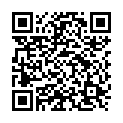|
|
|
| Module code: WiMb19IN112 |
|
0PA |
|
6 |
| Semester: 1 |
| Mandatory course: no |
Language of instruction:
German |
Assessment:
Written exam or term paper or case study
[updated 14.06.2021]
|
|
The total student study time for this course is 150 hours.
|
Recommended prerequisites (modules):
WiMb19IN119 Technology and Innovation Management
[updated 31.10.2022]
|
Recommended as prerequisite for:
|
Module coordinator:
Prof. Dr.-Ing. Christian Köhler |
Lecturer:
Prof. Dr.-Ing. Christian Köhler
[updated 20.03.2020]
|
Learning outcomes:
After successfully completing this module, students will:
be familiar with the Industry 4.0 vision and examples of its implementation,
be able to assess the requirements, opportunities, risks and limitations of implementing Industry 4.0,
be able to apply strategies and process models for identifying the potential of Industry 4.0 and for operational implementation, taking into account the factors technology, organization and human resources,
be familiar with the concept and the economic, as well as ecological benefits of hybrid value creation,
be able to apply strategies and procedures for the implementation of hybrid value creation processes and business models.
[updated 14.06.2021]
|
Module content:
Basics and overall potential of Industry 4.0
Basic tools for technology management
Identifying potentials of Industry 4.0 in companies
Implementing Industry 4.0 in companies
Basics of hybrid value creation / (industrial) product service systems
Hybrid value creation as a business model for Industry 4.0
Hybrid value creation as a business model for circular value creation (Circular economy)
Designing and implementing hybrid value creation business models
[updated 14.06.2021]
|
Teaching methods/Media:
Expert talks / Coaching
Current specialist articles
Self-study materials and case studies
[updated 14.06.2021]
|
Recommended or required reading:
Lucks, K.: Praxishandbuch Industrie 4.0 : Branchen - Unternehmen - M & A, Schäffer-Poeschel, 2017
Vogel-Heuser, B., Bauernhansl, T., ten Hompel, M. (Hrsg.): Handbuch Industrie 4.0, Band 1-4, SpringerVieweg, 2017
Jahn, M.: Industrie 4.0 konkret, SpringerGabler, 2017
Bauernhansl, T., ten Hompel, M., Vogel-Heuser, B. (Hrsg.): Industrie 4.0 in Produktion, Automatisierung und Logistik, SpringerVieweg, 2014
Wagner, R.: Industrie 4.0 für die Praxis, SpringerGabler, 2018
Köhler, C.: Produktionsoptimierung mit Wertstromworkshops Leitfaden zur zielorientieren Optimierung und Gestaltung von Produktionsflüssen, ePubli, 2017
Aurich, J.C., Clement, M.H.: Produkt-Service Systeme: Gestaltung und Realisierung, Springer, 2010
Aurich, J.C., Koch, W., Kölsch, P., Herder, C. (Hrsg.): Entwicklung datenbasierter Produkt-Service Systeme: Ein Ansatz zur Realisierung verfügbarkeitsorientierter Geschäftsmodelle, SpringerVieweg, 2019
Meier, H., Uhlmann, E. (Hrsg.): Industrielle Produkt-Service Systeme Entwicklung, Betrieb und Management, SpringerVieweg, 2017
[updated 14.06.2021]
|

